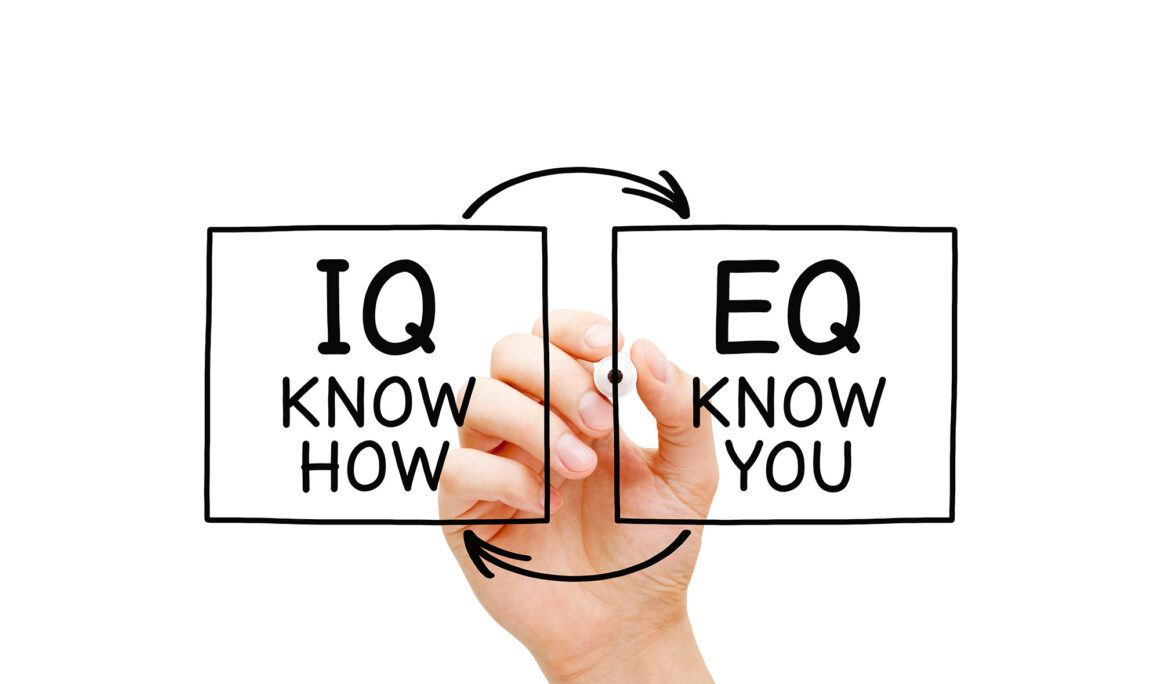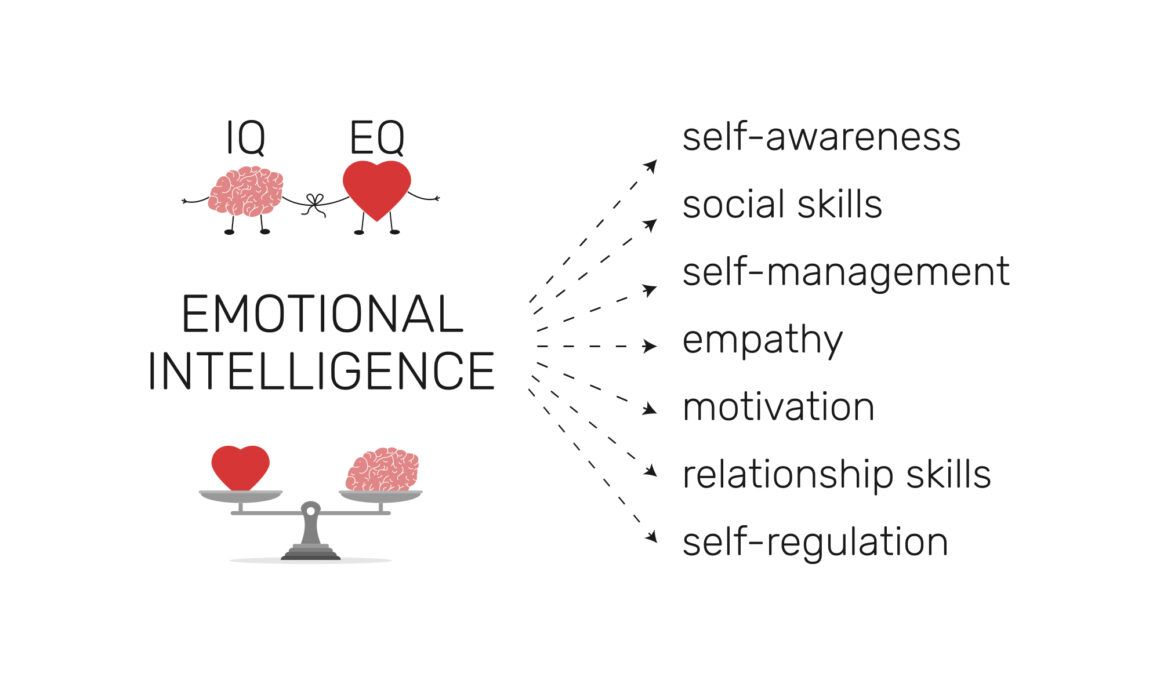Emotional intelligence coaching: how to expand your emotional intelligence competencies
By Julian Lewis • November 17, 2022

Coaching can help you expand your emotional intelligence competencies. Coaching can help you learn how to better understand and manage your emotions, as well as the feelings of others. Before we dive into HOW coaching can help, let’s start with a better understanding of emotional intelligence.
What is emotional intelligence (EQ)?

Emotional intelligence, also known as EI or EQ, is defined as the capacity to be aware of, control, and express one's emotions and to handle interpersonal relationships judiciously and empathetically. It's also the ability to monitor one's own and others' emotions, discriminate between different emotions, label them appropriately, and use emotional information to guide your thinking and behavior.
The term emotional intelligence was first coined in 1990 by researchers John Mayer and Peter Salovey but later popularized by psychologist Daniel Goleman.
Daniel Goleman's model, when compared to IQ and technical skills, suggests that guaranteed business success comes from emotional intelligence. He found that 15% of a leader's success came from IQ and technical skills, while 85% is based on a leader's EQ.
He believed emotional intelligence includes having these five characteristics:
- They are good at understanding their own emotions (self-awareness)
- They are good at managing their emotions (self-management)
- They are empathetic to the emotional drives of other people (social awareness)
- They are good at handling other people’s emotions (social skills)
- They are good at motivating themselves
There is a growing interest in EI among researchers, educators, and business leaders, as research shows and recognizes its important role in personal success and well-being.
When we develop emotional intelligence helps improve leadership skills, reduce team stress, manage relationships, defuse conflict, and improve job satisfaction.
For example, people with high EI tend to be more successful in their professional careers, as they can better navigate the complex social dynamics of the workplace, including managing disruptive emotions and impulses in one's own emotional state or an entire group.
They also tend to have strong interpersonal relationships, as they can better connect with and understand others.
The core domains of emotional intelligence

A Daniel Goleman article in the Harvard Business Review states twelve competencies fall under the five realms of emotional intelligence. However, these five realms are broken down into four quadrants, or the core domains that house the emotional intelligence competencies.
These four quadrants are a framework often used in coaching and other forms of professional development to help people identify areas for growth and develop strategies for strengthening their emotional intelligence competencies.
Self-awareness
Self-awareness is the experience of one's personality or individuality. It is not to be confused with consciousness. Consciousness is awareness of one's philosophy of self, while self-awareness is the experience of one's personality or individuality.
The ability to be self-aware and accurately and honestly recognize your own feelings, thoughts, and motivations is a key component. Through coaching, you can become more self-aware by paying attention to your inner experiences and learning to identify patterns or triggers that may impact your emotions or behaviors.
The key competency in this domain is emotional awareness, which includes self-confidence, recognizing how your behavior impacts others, and paying attention to how others impact your emotional state.
Self-management
According to the American Psychological Association dictionary, self-management is an individual’s control of his or her behavior, particularly regarding pursuing a specific objective (e.g., weight loss). Self-management is usually considered a desirable aspect for the individual personally and socially, but some forms of self-management may be detrimental to mental and physical health. Psychotherapists and counselors often seek to provide clients with methods of identifying the latter and modifying them into the former.
An accurate self-assessment of your own feelings and learning to effectively manage and regulate your emotions are key. This can involve your ability to cultivate mindfulness practices like meditation or deep breathing, as well as developing skills for managing stress and difficult emotions when they arise.
Key competencies are emotional self-control, adaptability, achievement orientation, and positive outlook. Keeping disruptive emotions in check, acting congruently with your values, handling change flexibly, and self-motivation in pursuing goals and overcoming obstacles.
Social awareness
The key competency to social awareness is empathy. It requires one's ability to take an active interest and improve their perception of feelings when it comes to others and respond to the other person's needs accordingly.
In the workplace, it’s important to remember not to expect others to show up the same way you do. People have different experiences, expectations, and different ways of seeing things.
Being socially aware is embracing that people can see things differently but what we have in common is knowing the ways we see things is important to us. In other words, validate how people see things even if it is different from the way you do.
Relationship management
Understanding and managing your relationships with others is an important part of emotional intelligence. This may involve building rapport and trust, seeking input and feedback from others, or honing your communication skills to improve interpersonal interactions.
Recognizing the value of our relationships and being enlightened as to what makes them work. Always keeping in mind the dynamics of the relationship when communicating. For instance, if the relationship dynamic is “teammate,” then reminding yourself in tough conversations that “we are a team and in this together” helps to direct your intentionality. You reframe your thought process from “me” to “we.”
Organizational awareness or political awareness is important in the workplace. It includes reading a group's emotional currents and power relationships and identifying influencers and networks.
If you are interested in coaching or are wondering how much does business coaching cost, please feel free to reach out directly. I'd be happy to help you.
About the author: Julian Lewis is the co-founder of Zella Life, a coaching platform bridging the diversity gap to help professionals of color to grow and thrive.
Read more about: Executive Coaching
About Julian Lewis
Julian Lewis is a driven and accomplished professional with a passion for driving positive change in the business world. He is the co-founder and COO at Zella Life.
His own experience as a professional of color in a Fortune 500 company led him to discover the limitations for advancement that many professionals like himself face. Determined to reach his full potential, Julian became an established business coach and entrepreneur, committed to supporting others in their pursuit of personal and professional growth.
Today, Julian is a recognized corporate trainer, coach, and leader, known for his ability to leverage real-life experiences and evidence-based methodologies to affect positive change within individuals and organizations. As the leader of Zella Life's coaching division, he is dedicated to empowering individuals and businesses to achieve their full potential.